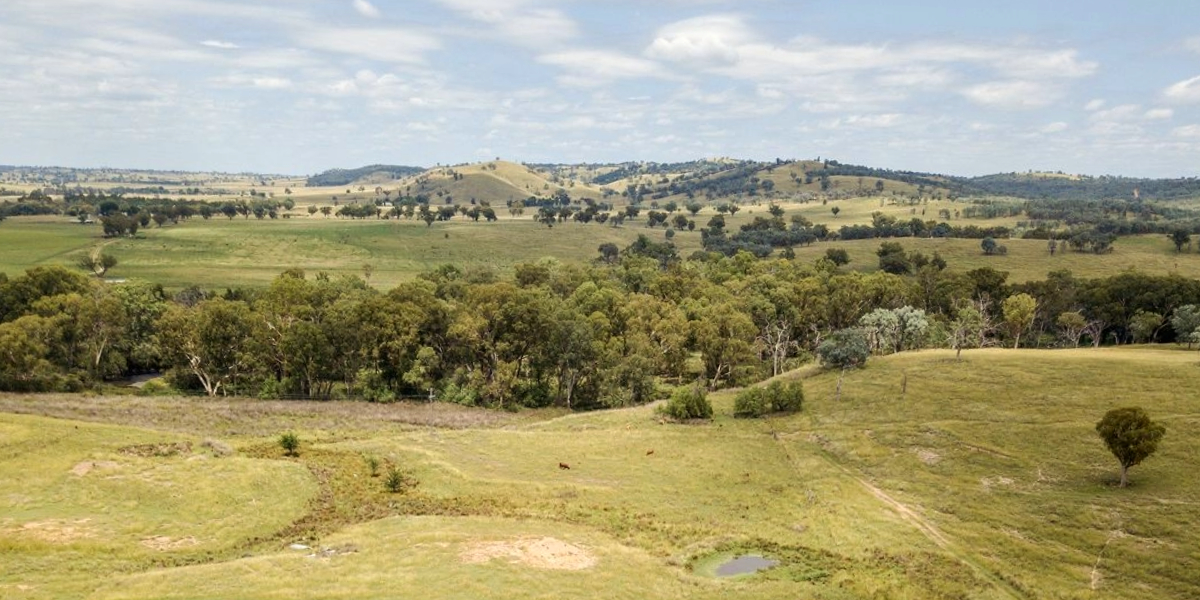Inverell farmer, Andrew Baker has a new neighbour – but he’s not putting the kettle on just yet.
“I can’t see Gina Rinehart popping over for tea and scones,” Mr Baker said.
Mr Baker, also Deputy Chair of the Inverell branch of NSW Farmers lives just across the road from Jindabyne Station, the 7,000-hectare property recently snapped up by Australia’s richest woman.
Ms Gina Rinehart’s latest acquisition, through her S. Kidman & Co. business, marks the mining magnate’s first move into the Inverell district. The $36 million purchase has made headlines across national media, but closer to home, it’s drawing a mixed reaction.
“There’s certainly a bit of curiosity around the traps,” Mr Baker said.
“Everyone wants to know what it’ll mean for the local industry and for land values.”
Jindabyne Station, located about 80 kilometres north of Inverell, has long been recognised as a productive breeding block.
The previous owner of Jindabyne Station was Inverell local, David Stewart, principal of Stewart Grain Trading in Inverell. A respected figure in the community, Mr Stewart had managed the property with strong ties to the local agricultural landscape.
His decision to sell the station to S Kidman & Co marked the end of a significant chapter for the area, with many locals aware of his long-standing contribution to the region’s farming and grazing industries.
The new owners, a joint venture between Rinehart’s Hancock Agriculture and Chinese minority partner Shanghai CRED, are expected to stock it with Angus breeders for mating to high-performance Wagyu Fullblood bulls.
Kidman’s aim? Producing what they call “Kidman Premium” beef – tender, juicy steaks aimed at consumers who want marbling without the eye-watering price tag of Fullblood Wagyu.
“It’s definitely a different model,” Mr Baker said. “They’re going to be feeding cattle for 200-plus days to hit certain specs. There’ll be investment, jobs, maybe even contracts for local suppliers.”
“We don’t want to turn our noses up at anyone willing to invest in the district. If they’re putting money into local infrastructure, using local contractors, buying fuel and supplies here, that’s a positive.”
But he also raises concerns about the broader implications of large-scale acquisitions by corporate players, especially when the sales are off market, as this one was.
“It was a bit disappointing that nobody local got a go,” he said. “There are families around here that would have been interested. But nobody knew about it until it was already sold. That’s a bit of a kick in the guts, especially for young blokes who want to stay in the game.”
Jindabyne is just the latest in a growing list of properties on the New England that have been sold to corporate or foreign-backed owners in recent years. While the influx of capital can lift local economies, there are concerns it also inflates land prices and shifts farming from family-owned enterprises to boardroom-managed agribusiness.
“It’s not that people are anti-investment,” Mr Baker clarifies. “But there’s a difference between being part of a community and simply operating in one. People here want to see their neighbours involved in local shows, schools, footy clubs, not just flying in managers from somewhere else.”
And with Kidman’s beef headed for high-end markets, both domestically and overseas, there’s a question of how much of the benefit will stay local.
“We’d like to see them at the saleyards, not just trucking cattle in and out under the radar,” Mr Baker said.
“We’d like to see their staff settling here, kids in local schools, money going through local businesses.”
For now, most in the Inverell district are taking a wait-and-see approach.
“It’s early days. They’ve got a clear plan, they’re chasing a specific beef product with consistent specs. It’s a polished business model and they are very focussed on safety which is good,” Mr Baker said.
Mr Baker said he hopes ownership of such a significant property comes with a sense of responsibility to the local region.
“They’ve bought into the district, now let’s see if they buy into the community,” he said.
Got something you want to say about this story? Have your say on our opinion and comment hub, New England Times Engage

